What a Heart Attack Really Feels Like
You might picture a heart attack as a sudden, crushing chest pain-like in the movies. But for many people, it doesn’t look like that at all. In fact, nearly half of all heart attacks start with symptoms so mild or unusual that people brush them off as indigestion, stress, or the flu. The truth is, heart attacks don’t always scream. Sometimes they whisper. And if you miss the whisper, you could lose precious minutes-minutes that cost heart muscle, and sometimes life.
Every minute without blood flow to the heart kills about 1.5 million heart cells. That’s not a guess. It’s what researchers found in Circulation in 2014. The window for the best treatment? 90 minutes from when symptoms start. But the average person waits three hours before calling 911. Why? Because they don’t recognize what’s happening.
The Classic Signs (And Why They’re Not Always Enough)
The American Heart Association lists chest discomfort as the most common sign. That discomfort isn’t always sharp pain. It’s often pressure, tightness, fullness, or a heavy weight sitting on your chest. It lasts more than a few minutes-or it comes and goes. If you’ve ever felt like someone sat on your sternum during a bad anxiety attack, that’s what it can feel like.
But here’s the catch: not everyone gets chest pain. About 1 in 4 heart attacks happen without it. Especially in women, older adults, and people with diabetes. That’s why relying on chest pain alone is dangerous. You need to know the full picture.
Other Body Areas That Can Signal Trouble
Your heart doesn’t just hurt in your chest. The pain can radiate-or even show up-elsewhere. About 65% of people feel discomfort in their arms, back, neck, jaw, or stomach during a heart attack. Left arm pain is the most common, but right arm pain happens too. Some people feel it in their shoulders or between the shoulder blades. Jaw pain? That’s not just a dental issue. A 42-year-old woman in a 2022 Journal of Emergency Medicine case study was misdiagnosed with TMJ for two days before her heart attack was caught.
Stomach pain can feel like heartburn or a bad stomach bug. In fact, 24% of heart attacks are mistaken for indigestion, according to the American College of Cardiology. If you’ve had heartburn before, but this time it’s worse, doesn’t go away with antacids, and comes with sweating or nausea-don’t ignore it.
What Women Need to Know (It’s Not Just Chest Pain)
Women are 58% more likely than men to have shortness of breath as their main symptom. They’re 47% more likely to feel nauseous or vomit. And 37% more likely to have back or jaw pain without any chest discomfort at all. Only 64% of women experience chest pain during a heart attack, compared to 90% of men.
Many women describe the feeling as pressure or tightness-not stabbing pain. One woman told her doctor she felt like her bra was too tight. Another said it felt like she’d been punched in the chest. Both were having heart attacks.
Older women (55+) are twice as likely as men their age to have symptoms like overwhelming anxiety, dizziness, or sudden fatigue. One study found 19% of women reported a sense of impending doom-like something terrible was about to happen. That’s not panic. That’s your body screaming for help.
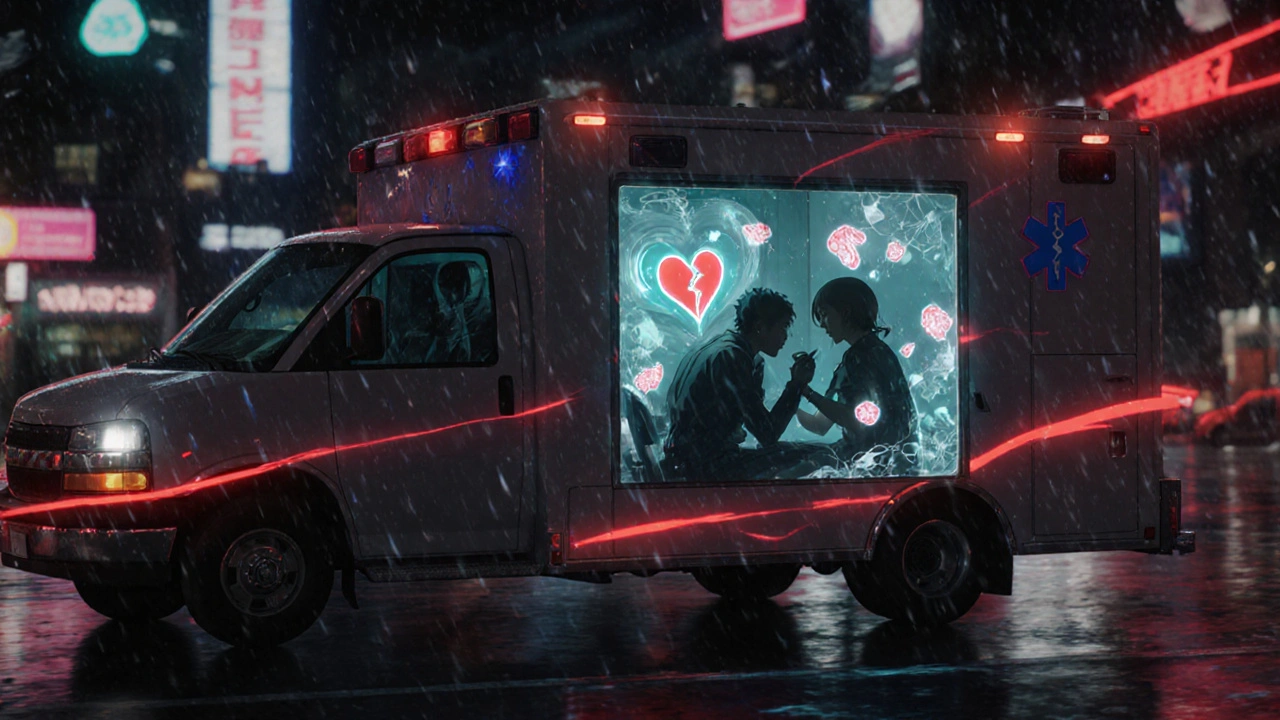
Signs You Might Not Think Are Heart-Related
Here are the symptoms people often dismiss:
- Breaking out in a cold sweat-not from heat, not from exercise. Just sudden, unexplained sweating. Happens in 30% of cases.
- Unusual tiredness-especially in women. 48% of women report extreme fatigue days or even weeks before a heart attack. Not just ‘I’m tired.’ This is the kind that makes you stop mid-sentence because you can’t catch your breath.
- Shortness of breath-with or without chest pain. You’re not out of shape. You’re not climbing stairs. You’re sitting still and can’t breathe.
- Lightheadedness or dizziness-like you’re about to pass out. Not from standing up too fast. This is sudden and unexplained.
- Palpitations-your heart feels like it’s fluttering, skipping, or racing for no reason. 18% of people report this in the weeks before a heart attack.
Geisinger Health System’s 2025 research found that 22% of people had unexplained weakness for weeks before their heart attack. That’s not laziness. That’s your heart struggling to pump.
Why Delaying Help Is Deadly
People wait. Why? Because they don’t want to look foolish. Because they think it’s just gas. Because they’re scared. One in three heart attack victims waits more than two hours before calling 911.
And the cost? Higher death rates. Women are 50% more likely to die within a year after a heart attack than men-not because their hearts are weaker, but because they’re more likely to be misdiagnosed. A 2021 study in Circulation found women are sent home from emergency rooms with heart attack symptoms 50% more often than men.
And it’s not just women. Older adults often have silent heart attacks-no chest pain at all. In people over 75, 30% have heart attacks with no symptoms. They just feel weak, confused, or short of breath. That’s why checking in with your doctor after unusual fatigue matters.
What to Do the Moment You Suspect a Heart Attack
Don’t drive yourself. Don’t wait to see if it gets better. Don’t call a family member first. Call 911 immediately.
Why? Ambulance crews can start treatment while en route. They can give oxygen, aspirin, and monitor your heart. They get you to the hospital 25% faster than driving yourself. And if your heart stops, they can restart it on the spot.
If you’re not allergic to aspirin and your doctor hasn’t told you to avoid it, chew one 325mg tablet while waiting for help. It thins the blood and can reduce damage. Don’t swallow it whole-chew it. It works faster.
If you’re with someone who collapses, starts gasping, or becomes unresponsive, start CPR. If you don’t know how, the 911 operator can walk you through it. Hands-only CPR-pushing hard and fast in the center of the chest-can double or triple survival chances.
Prevention Starts With Awareness
Heart attacks aren’t just for older men. Rates in adults aged 25-44 have been rising by 2% every year since 2000. Stress, poor diet, lack of movement, smoking, and untreated high blood pressure are big contributors. And if you’ve had a heart attack before, your risk of another one is much higher.
There are tools now that help catch problems early. Wearable EKG devices-like those in Apple Watches and Fitbits-are used by 38% of U.S. adults. They can detect irregular heart rhythms like atrial fibrillation, which increases heart attack risk. In March 2023, the FDA approved the first AI-powered algorithm (CardioLogics AI) that can predict a heart attack 30 minutes before symptoms start, with 92.7% accuracy.
But tech doesn’t replace awareness. The most powerful tool you have is knowing the signs-and acting fast.
Final Thought: When in Doubt, Call 911
It’s better to be wrong than to be dead. If you’re unsure whether your symptoms are serious, call 911. Emergency responders have seen it all. They’ve been called for heartburn that turned out to be a heart attack. They’ve been called for panic attacks that were actually cardiac arrest. They don’t judge. They save lives.
And if you’re the one who notices someone else acting strange-sweating, pale, clutching their chest, struggling to breathe-don’t wait. Ask: ‘Are you having a heart attack?’ If they say no, say: ‘I’m calling 911 anyway.’ You might just save their life.
Can you have a heart attack without chest pain?
Yes. About 1 in 4 heart attacks happen without chest pain. This is especially common in women, older adults, and people with diabetes. Symptoms can include shortness of breath, nausea, extreme fatigue, cold sweats, jaw or back pain, or sudden dizziness. Don’t wait for chest pain to act.
Are heart attack symptoms different for women?
Yes. While men often have classic chest pain, women are more likely to experience shortness of breath, nausea, vomiting, back or jaw pain, and extreme fatigue. Women are 58% more likely to have shortness of breath as their main symptom and 47% more likely to feel nauseous. These symptoms are often mistaken for anxiety, the flu, or indigestion, leading to dangerous delays in care.
What should I do if I think I’m having a heart attack?
Call 911 immediately. Do not drive yourself. If you’re not allergic to aspirin and your doctor hasn’t told you to avoid it, chew one 325mg tablet while waiting for help. Stay calm, sit down, and try to rest. Emergency crews can begin treatment on the way to the hospital, which improves survival chances by 25% compared to driving yourself.
Is it safe to take aspirin during a heart attack?
Yes-if you’re not allergic and your doctor hasn’t told you to avoid it. Chewing a 325mg aspirin tablet helps thin the blood and may reduce heart damage. Do not take it if you’re unsure-it’s not a substitute for calling 911. Never give aspirin to someone who is unconscious or having trouble swallowing.
Can wearable devices detect a heart attack?
Some wearable devices, like Apple Watch or Fitbit, can detect irregular heart rhythms like atrial fibrillation, which increases heart attack risk. But they cannot diagnose a heart attack in real time. The FDA approved an AI algorithm in 2023 (CardioLogics AI) that predicts heart attacks 30 minutes before symptoms appear, but it’s not yet available to the public. Wearables are helpful for monitoring, but not a replacement for recognizing symptoms and calling 911.
How long do I have to act after symptoms start?
The ideal window for treatment is within 90 minutes of symptom onset. Every minute without blood flow kills heart muscle. Waiting longer than 2 hours significantly increases the risk of permanent damage or death. Calling 911 right away gives you the best chance of survival and recovery.
What if I’m wrong? Will I get in trouble for calling 911?
No. Emergency responders are trained to handle false alarms. They’d rather come to your house 100 times for something that turns out to be indigestion than miss one real heart attack. Over 33% of heart attack victims wait too long because they’re afraid of embarrassing themselves. Don’t let fear cost you your life.
Next Steps: Know the Signs, Act Fast
If you haven’t already, talk to your family about heart attack symptoms. Make sure your kids, parents, and partner know what to look for. Keep aspirin in your medicine cabinet and know if you’re allergic. Download a CPR app or take a free online course-many are offered by the American Heart Association. Practice hands-only CPR on a mannequin or even a pillow. You never know when you’ll need it.
Heart attacks don’t wait for convenient times. They don’t care if you’re at work, on vacation, or in the middle of a busy day. But you can prepare. Recognizing the signs isn’t just medical knowledge-it’s survival skill. And knowing when to call 911? That’s the most important thing you’ll ever do.

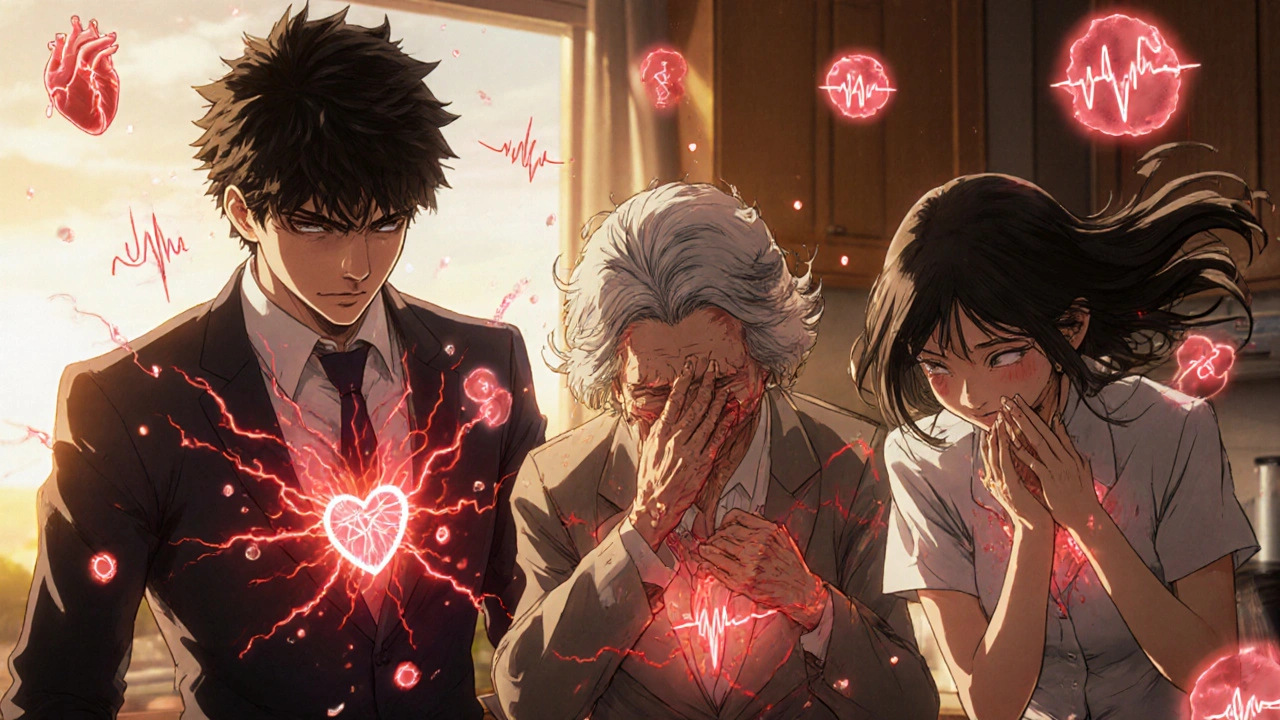

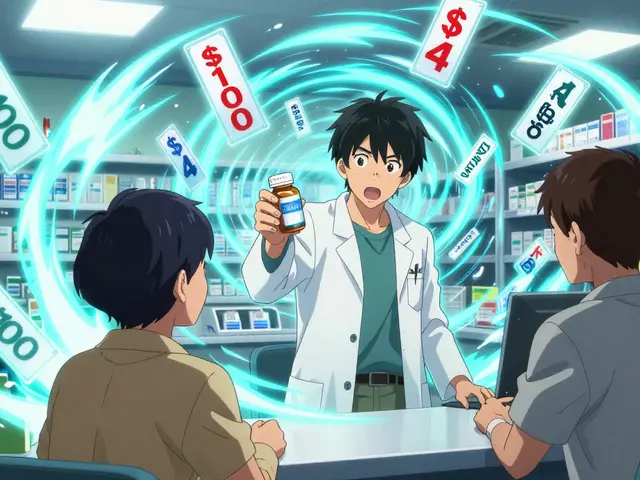

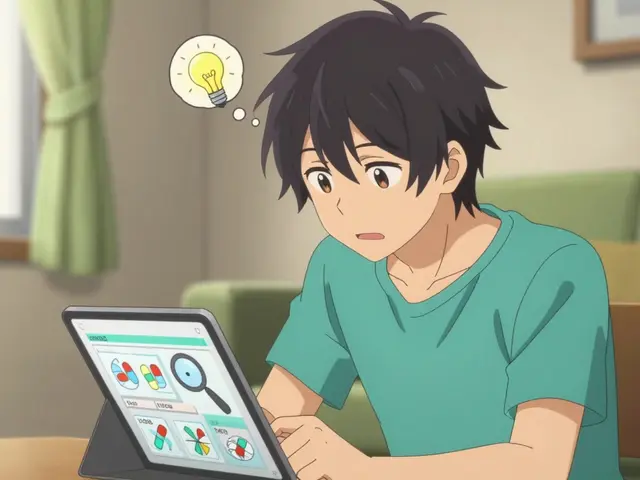
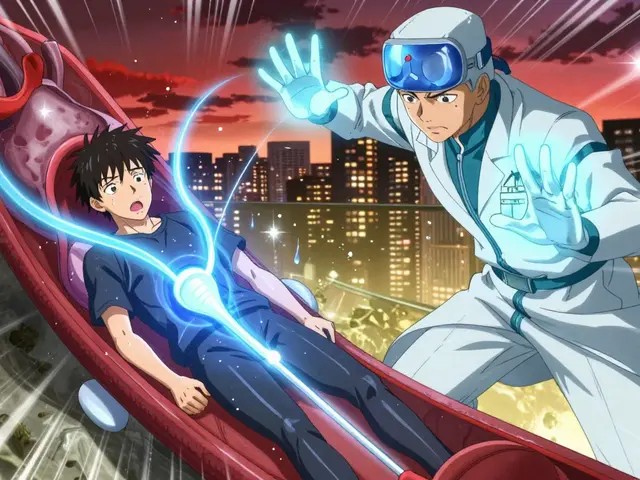
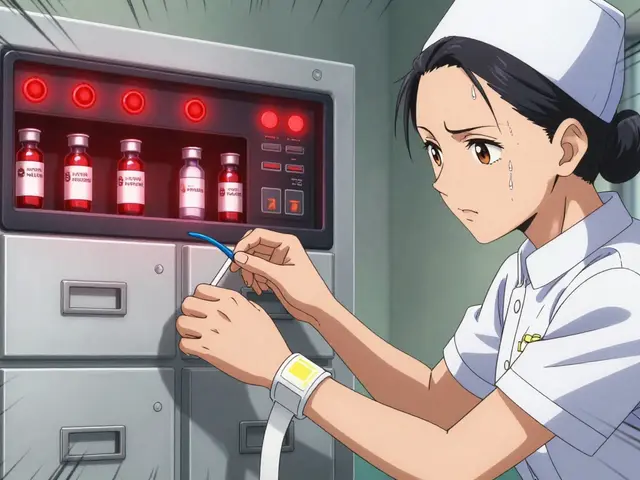
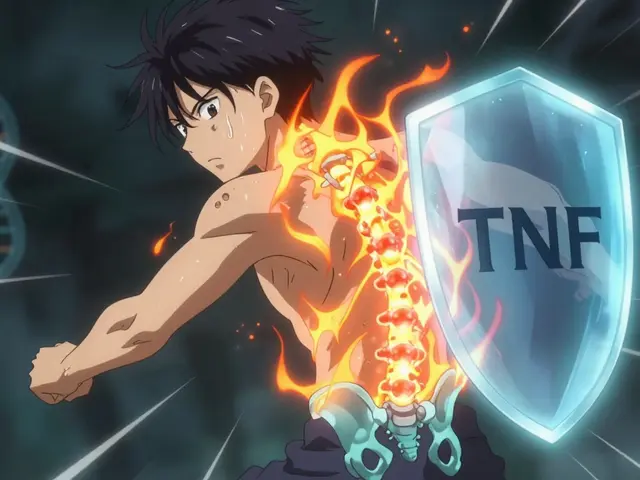
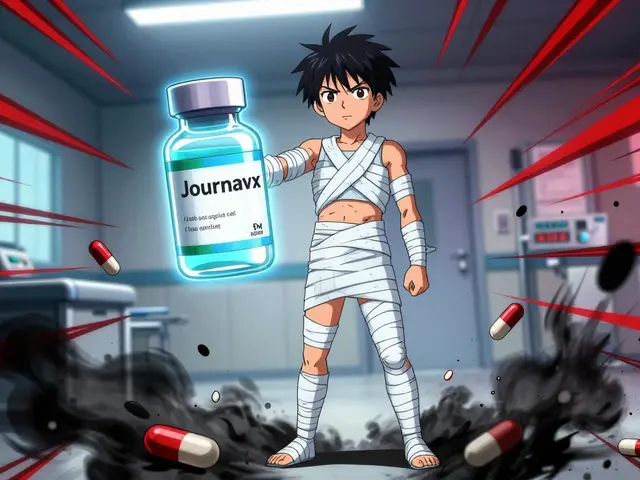
Let me just say this: if you wait for chest pain, you're already dead. I've seen three family members die because they thought it was 'just indigestion.' And now? I nag my entire family about this. Every. Single. Day. You don't get a second chance. Call 911. Chew the aspirin. Don't text your sister first. Don't Google it. Just. Call. 911.
Yessss this is why I carry aspirin in my purse now 🙌 I used to think heart attacks were for grandpas in suits. Now I know it’s my 38-year-old yoga instructor who just passed out at class. Also, why is no one talking about the fact that ERs ignore women? 🤡
Okay but have you seen the corporate media silence on how Big Pharma doesn't want you to know that heart attacks are caused by EMF radiation from smartwatches? 📱💀 They're selling you fake 'early detection' tech so you'll keep buying devices while they profit off your slow death. The AI algorithm? Total scam. The FDA is owned by Pfizer. Wake up people.
Really appreciate how detailed this is. I'm from India and we rarely talk about heart health until it's too late. My uncle had a silent heart attack at 52-no chest pain, just extreme fatigue for weeks. He thought it was work stress. Now he's on meds and walks 10k steps daily. Awareness saves lives. Please share this with your elders.
You got this. Seriously. If you're reading this and you're scared-good. That means you're paying attention. Start keeping aspirin in your car, your desk, your gym bag. Teach your kids what 'pressure on the chest' feels like. It's not scary to talk about-it's empowering. You're not being dramatic. You're being smart. 💪❤️
Brother and sister, this is the most important thing I've read all year. I work in Lagos and I've seen so many young people ignore symptoms because they think 'I'm too young for this.' One guy, 29, collapsed at a party-he had diabetes and ignored the fatigue for three weeks. He’s in a wheelchair now. Please don't wait. Talk to your friends. Send this to your WhatsApp group. This isn't just health advice-it's love in action.
As a Filipina-American, I’m stunned how little this is discussed in my community. My lola thought her arm pain was arthritis. She had a heart attack in her sleep. Now I show my cousins this article every year during Thanksgiving. Knowledge is power, but sharing it? That’s legacy.
Why are they hiding the truth? The real cause? It's the government’s 5G towers. They’re slowly poisoning the population so they can control who lives and who dies. The heart attack stats? Fabricated. The aspirin advice? A distraction. They want you dependent on hospitals. Wake up. This isn't medicine-it's control.
Look, I’m a red-blooded American and I hate when people panic over everything. But this? This is legit. I used to think heart attacks were for fat guys who ate bacon every day. Then my cousin, 34, vegan, runs marathons, gets chest pressure after yoga-and it’s a heart attack. Turns out stress and sleep deprivation are the new smoking. America’s been lied to. We’re all one bad week away from cardiac arrest. Time to stop being lazy and start caring.
It is imperative to note that the statistical data presented herein is both accurate and corroborated by peer-reviewed literature from the American Heart Association and the Journal of Emergency Medicine. Furthermore, the recommendation to chew aspirin is not merely anecdotal but is supported by Level 1A clinical evidence. One must not underestimate the gravity of symptom misattribution, particularly among female demographics, wherein the prevalence of atypical presentations is statistically significant and clinically consequential. Please, for the love of evidence-based medicine, do not delay emergency intervention.
While the article is commendably thorough in its clinical exposition, one cannot help but observe the underlying cultural bias toward technocratic solutions-wearables, AI algorithms, and pharmaceutical interventions-while neglecting the existential dimensions of mortality. The true crisis is not medical, but metaphysical: we have outsourced our bodily awareness to devices and institutional authority, thereby surrendering our primal capacity for somatic discernment. To call 911 is not merely to act-it is to admit the fragility of modern man's illusion of control.